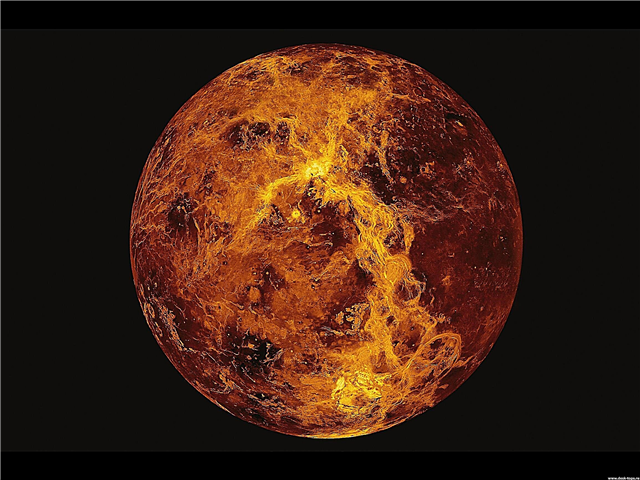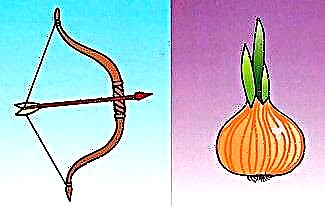Vladimir Ivanovich Dahl (1801-1872) - Russian writer, ethnographer and lexicographer, collector of folklore, military doctor. It gained the greatest popularity due to the unsurpassed volume "Explanatory Dictionary of the Living Great Russian Language", which took 53 years to compile.
There are many interesting facts in Dahl's biography, which we will talk about in this article.
So, before you is a short biography of Vladimir Dahl.

Dahl's biography
Vladimir Dal was born on November 10 (22), 1801 in the village of Lugansk plant (now Lugansk). He grew up and was brought up in an intelligent and educated family.
The father of the future writer, Johan Christian Dahl, was a Russified Dane who took Russian citizenship and took a Russian name - Ivan Matveyevich Dahl. Mother, Yulia Khristoforovna, was raising six children.
Childhood and youth
The head of the family was a medical doctor, theologian and polyglot. He knew 8 languages, including Latin, Greek and Hebrew. In addition, the man was a famous linguist, the fame of which reached Catherine 2 herself.
Over time, the empress invited Dahl Sr. to become her court librarian. An interesting fact is that Vladimir's mother was fluent in 5 languages, being engaged in translation activities.
When little Volodya was 4 years old, he and his family moved to Nikolaev. In this city, Ivan Matveyevich managed to curry favor with the nobility, which allowed his children to study for free at the St. Petersburg Naval Cadet Corps.

At an early age, Vladimir Dal received home education. In the house where he grew up, much attention was paid to reading and the printed word, the love for which was passed on to all children.
When the young man was 13 years old, he entered the St. Petersburg Naval Cadet Corps, receiving the profession of a warrant officer. During the biography of 1819-1825. he managed to serve in the Black and Baltic Seas.
At the end of 1823, Vladimir Dal was arrested on suspicion of having authored a sarcastic epigram on the commander-in-chief of the Black Sea Fleet, Alexei Greig, and his mistress. After 8 months of imprisonment, the guy was still released.
In 1826 Dahl became a student at the University of Dorpat, choosing the medical department. In his student years, he had to huddle in a small closet in the attic, earning a living by private lessons in the Russian language. While studying at the university, he mastered Latin, and also studied various philosophical concepts.
Wartime and creativity
Due to the outbreak of the Russian-Turkish war (1828-1829), Vladimir Dahl had to interrupt his studies. During the war and after its end, he served at the front as a military doctor, since the Russian army was in dire need of medical personnel.
Dahl was allowed to receive his diploma ahead of schedule, "having passed the exam for a doctor of not only medicine, but also surgery." It is worth noting that he proved to be an excellent field doctor, as well as a brave soldier who participated in some battles. An interesting fact is that he was awarded the Order of St. Vladimir, 4th degree from Nicholas 1 himself.

For some time, Vladimir Dal worked in one of the hospitals in St. Petersburg, gaining a reputation as a talented physician. Later he decided to leave medicine, however, he retained an interest in ophthalmology and homeopathy. Curiously, he is the author of one of the first works in the Russian Empire to defend homeopathy.
In 1832 Dahl published the work “Russian Fairy Tales. The first five ”, which became his first serious work. Fairy tales were written in a language that anyone could understand. After the publication of the book, the writer gained great popularity in the literary circles of the city.
However, the Minister of Education considered the work unreliable, as a result of which the entire unsold edition of Russian Fairy Tales was destroyed. Soon Dahl was arrested and taken into custody.
Vladimir Ivanovich managed to escape from subsequent repressions only thanks to the help of the poet Zhukovsky, who was the mentor of Tsarevich Alexander 2. The poet presented everything that had happened to the heir to the throne in an ironic and humorous manner, as a result of which all charges were dropped from Dahl.
In 1833, the future creator of the "Explanatory Dictionary" took up the post of an official for special assignments working under the military governor. In this position, he worked for about 8 years.
In those years of his biography, Dal visited a number of regions of the Southern Urals, where he collected a lot of unique folklore materials, which later formed the basis of his works. An interesting fact is that by that time he spoke at least 12 languages.
Vladimir Dal continued to be engaged in writing. In the 1830s, he collaborated with the Rural Reading publication. Then from under his pen came "There were also fables of Cossack Lugansky."
From 1841 to 1849, Dal lived in St. Petersburg, working as a secretary for Count Lev Perovsky, and then as the head of his special chancellery. Then he wrote many "physiological essays", compiled several textbooks on zoology and botany, and also published many articles and stories.
Even in his youth, Vladimir Dal showed great interest in proverbs, sayings and Russian folklore. He received a lot of similar material from all over the country. Trying to be closer to the common people, he decides to move to a province.
In 1849, the man settled in Nizhny Novgorod, where for about 10 years he held the position of manager of a local specific office. It was here that he managed to finish work on a large book - "Proverbs of the Russian people", which contained over 30,000 proverbs.

And yet the most outstanding merit of Vladimir Dal is the creation of the "Explanatory Dictionary of the Living Great Russian Language". The words contained in it, used in the 19th century, had concise and precise explanations. It took 53 years to compile the dictionary.
The work contained about 200,000 words, about a third of which had not previously been included in other dictionaries. For this work in 1863 Dahl was awarded the Lomonosov Prize of the Academy of Sciences and the title of Honorary Academician. The first 4-volume edition was published in the period 1863-1866.
An interesting fact is that Dahl promoted the idea that peasants should not be taught to read and write, because without proper mental and moral education, it would not bring people to good.
Acquaintance with Pushkin
Alexander Pushkin's acquaintance with Dal was supposed to take place with the assistance of Zhukovsky, but Vladimir decided to personally meet with the great poet. He gave him one of the surviving copies of Russian Fairy Tales.
Such a gift delighted Pushkin, as a result of which he sent Dal the manuscript of his new fairy tale "About the priest and his worker Balda", not forgetting to sign his autograph.
This led to the fact that Vladimir Dal went with the poet on a trip to the places of the Pugachev events that took place in the Orenburg region. As a result, Pushkin presented the writer with a gift copy of Pugachev's History.
It is curious that Dahl was present when Alexander Sergeevich Dantes was fatally wounded. He took part in the treatment of the wound, but it was not possible to save the life of the great poet. On the eve of his death, Pushkin gave his friend his talisman - a gold ring with an emerald.
Personal life
When Vladimir was 32 years old, he married Julia Andre. In this marriage, the couple had a girl, Julia, and a boy, Lev. A few years later, Dahl's wife passed away.
In 1840, a man re-married a girl named Ekaterina Sokolova. In this union, the spouses had 3 daughters: Maria, Olga and Ekaterina.
Death
In the last years of his life, Dahl was fond of spiritualism and homeopathy. A year before his death, the first light blow occurred to him, as a result of which the writer called an Orthodox priest to join the Russian Orthodox Church.
As a result, the man converted from Lutheranism to Orthodoxy. Vladimir Dal died on September 22 (October 4) 1872 at the age of 70.
Photo by Vladimir Dahl














